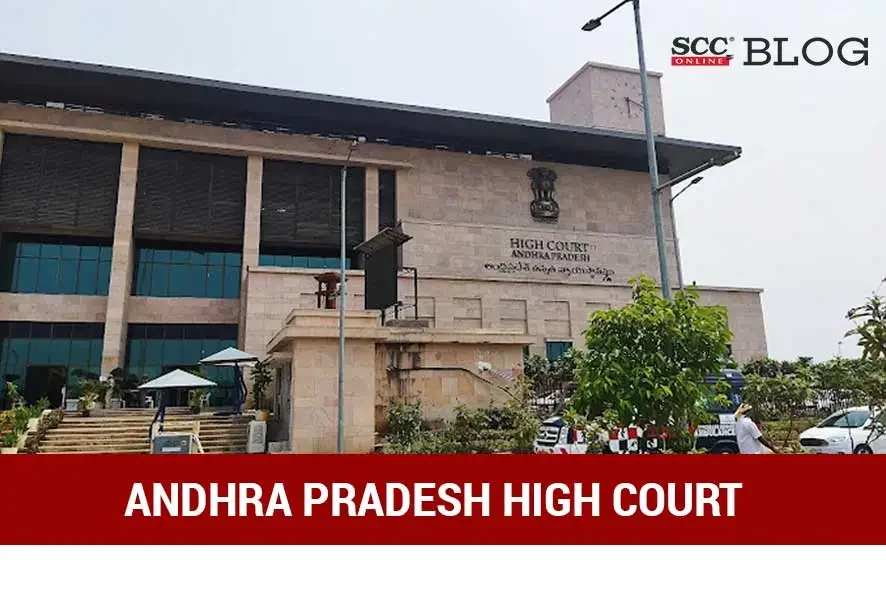Andhra Pradesh High Court: The Writ Petition was filed challenging the proceedings issued by Respondent 4, whereby petitioner’s appointment as a record assistant was terminated w.e.f 05-08-2012. Harinath.N, J.*, held that the action of Respondents 3 and 4 terminating the services of petitioner, was in accordance with the constitutional powers, more particularly, Article 16(5) of Constitution and the Statutory Power conferred by Rule 3 of the AP Charitable and Hindu Religious Institutions and Endowments Office Holders and Servant Service Rules, 2000 (‘the 2000 Rules’).
Background
Petitioner was appointed as Record Assistant in the office of Respondent 4 on compassionate grounds on 30-07-2002. Petitioner married a girl of his choice, and the marriage was solemnized on 02-10-2010 in a Cathedral Pastorate Church, at Nandyal of Kurnool District. A complaint was filed before Lokayukta, Hyderabad, complaining that Rule 3 of the 2000 Rules was violated as petitioner concealed his religion at the time of employment on compassionate grounds. The Lokayukta vide order dated 21-03-2012 directed the authority concerned to conduct an enquiry and submit the report.
Petitioner submitted that he did not conceal his religion and that his caste and school leaving certificate issued by the competent authorities revealed his caste as Indian, Hindu, Mala, Scheduled Caste Community. The enquiry revealed that petitioner had filed two different cases against the employees of Respondent 4 complaining that he was abused in the name of caste and two different crimes were registered, which after investigation by the Officer concerned, were closed as false. Thereafter, the authority found that petitioner was liable for action for non-compliance of Rule 3 of the 2000 Rules. Respondents 3 and 4 issued proceedings on 05-08-2012 thereby terminating petitioner from services as Record Assistant from Respondent 4’s office.
Analysis, Law, and Decision
The Court noted that in the Register of Marriages at Holy Cross Cathedral, Nandyal, petitioner and his wife’s name appeared in the column of name of the parties and religion was written as Christian. The Court further noted that petitioner had endorsed his signature in the said register. It was also mentioned that one Rt. Rev. Dr. G.T. Abraham performed the marriage ceremony. The Court thus opined that this clarified that petitioner was conscious of the fact that he was a Christian and his marriage was with a Christian lady and the marriage was solemnized in a church as per the Christian rites and church formalities.
On petitioner’s contention that he had married a Christian girl without converting himself as a Christian, the Court opined that then the marriage ought to have been performed under the provisions of the Special Marriage Act, 1954 (‘SMA’) and the marriage certificate ought to be issued under Section 13 of the SMA, but no certificate under Section 13 of the SMA had been issued in so far as petitioner’s marriage was concerned. The Court further opined that petitioner in order to get over Rule 3 of 2000 Rules had taken this plea, which was an afterthought, taken only to get over the statutory hurdle in him continuing in service of Respondent 4.
The Court relied on Article 16(5) of the Constitution and opined that Respondent 4 had absolute discretionary powers in farming rules for employees and servants of his Establishment. The Court further opined that Rule 3 of the 2000 Rules adequately empowered Respondent 4 to prescribe the service conditions and service rules and Rule 3 mandated that all employees shall follow Rule 3, which stated that “every officeholder and servants of a religious institution or endowment shall be a person professing the Hindu Religion and he shall cease to hold office when he ceases to profess the Hindu religion”. The Court thus opined that this rule mandated the employees of Respondent 4 to profess Hinduism and if any employee ceased to be a Hindu or converted into other religion, then his employment with the said religious institution would cease.
The Court dismissed the writ petition and held that the action of Respondents 3 and 4 terminating the services of petitioner, was in accordance with the constitutional powers, more particularly, Article 16(5) of Constitution and the Statutory Power conferred by Rule 3 of the 2000 Rules.
[P. Sudharshan Babu v. State of Andhra Pradesh, 2023 SCC OnLine AP 3535, decided on 08-11-2023]
*Judgment authored by: Justice Harinath. N
Advocates who appeared in this case :
For the Petitioner: Dr. Sireesh Anumula, Counsel
For the Respondents: G. Ramana Rao, Standing Counsel







